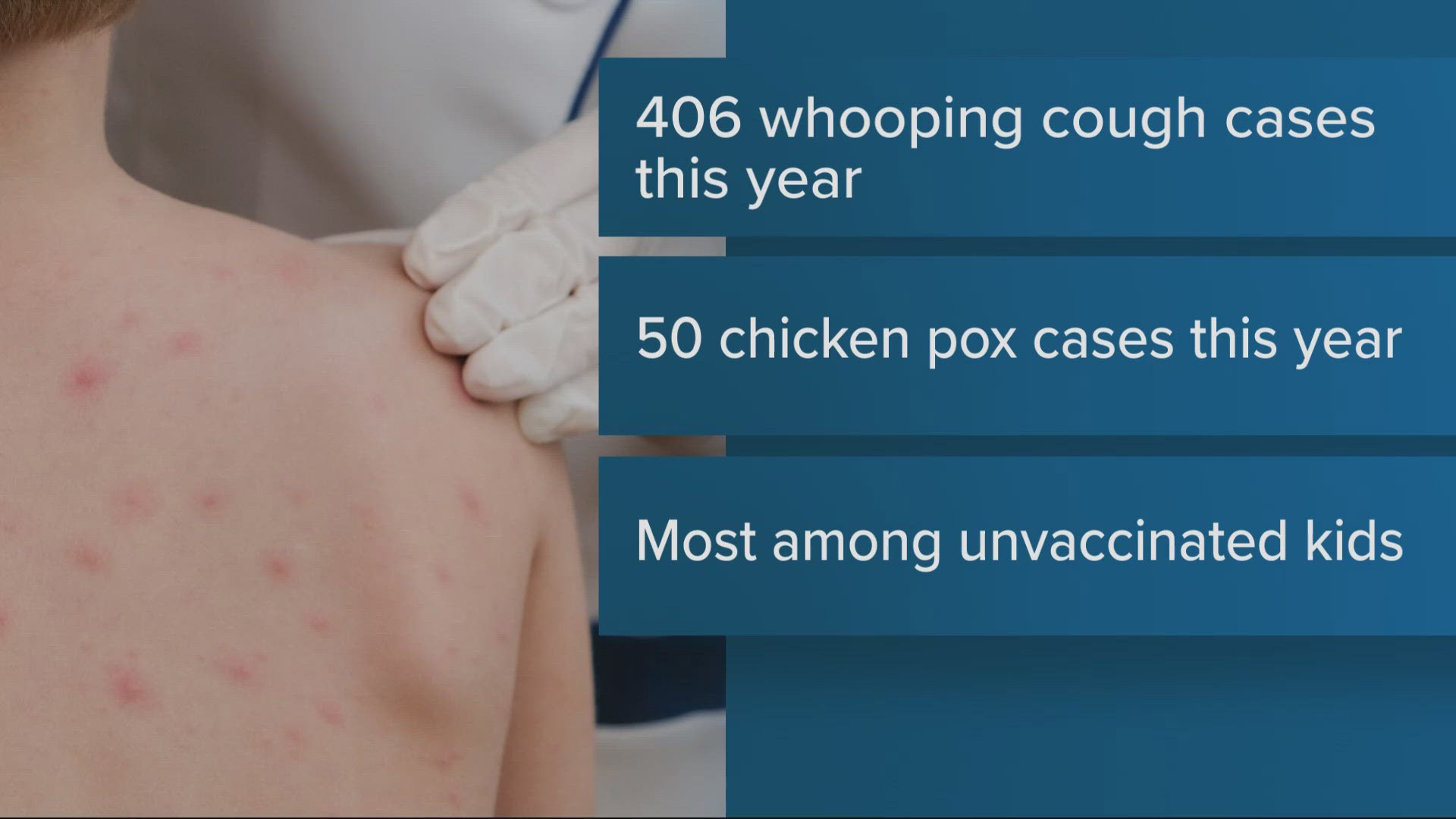CLARK COUNTY, Wash. — Whooping cough cases are continuing to increase in Clark County, as well as chickenpox outbreaks, mainly in unvaccinated children.
According to the county, 168 whooping cough cases have been reported in the first two months of the new school year. Throughout October, 406 Clark County residents, mostly children, were diagnosed — the highest number of whooping cough cases among all Washington state counties. It's a major increase over 2023, when Clark County reported only 14 cases for the entire year.
Three schools in Clark County have also been experiencing a chickenpox outbreak since late September, with 50 reported cases as of this year; 23 of those cases have been tied to schoolwide outbreaks, according to the Clark County Public Health.
Most of both the whooping cough and chickenpox cases are among unvaccinated children, Clark County Public Health said.
In late October, the county reported up to 342 whooping cough cases. This comes as whooping cough is at its highest level nationwide in a decade. This year, whooping cough cases have been increasing statewide in Oregon, according to the Oregon Health Authority. Vaccine exemptions are also at an all-time high, according to the Centers for Disease Control and Prevention (CDC).
“We have vaccines that are safe and can prevent these diseases,” said Dr. Alan Melnick, director of Clark County Public Health, in a statement. “The best thing parents can do to keep their children healthy and prevent them from missing time in the classroom is to ensure they are up to date on their vaccinations.”
Melnick noted that with whooping cough, the first two weeks of illness are marked by mild cold symptoms. He said it takes two weeks before the "whooping" starts.
"You're incredibly contagious during those first two weeks," said Melnick. "And you wouldn't know that you had it because you just had cold symptoms, so again, the best way for all of us to be protected is to be up to date on your vaccines."
County officials said that children who get whooping cough or chickenpox cannot return to school until they are no longer contagious, which could be a week or more, while students without immunity, either from being vaccinated or previously infected, may be excluded for 21 days from the last date they were exposed to the disease. Children also can bring the diseases home to younger children, with the greatest risk to infants for whooping cough in particular.

